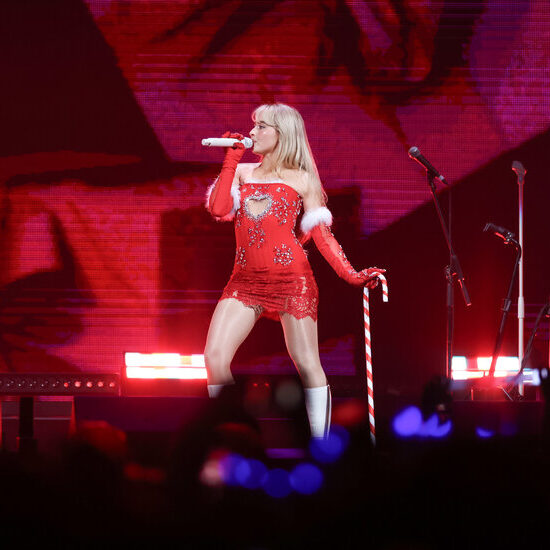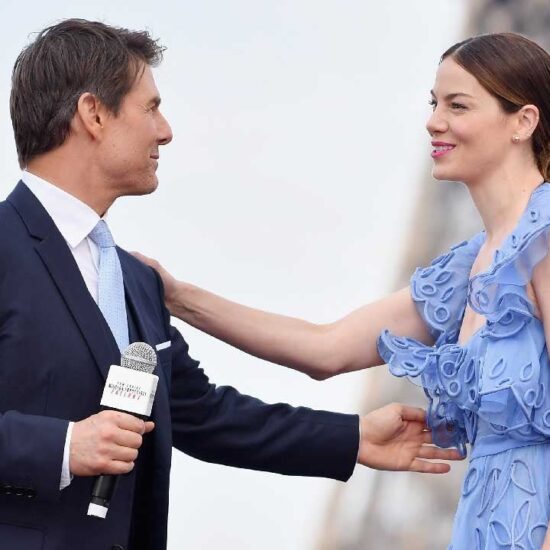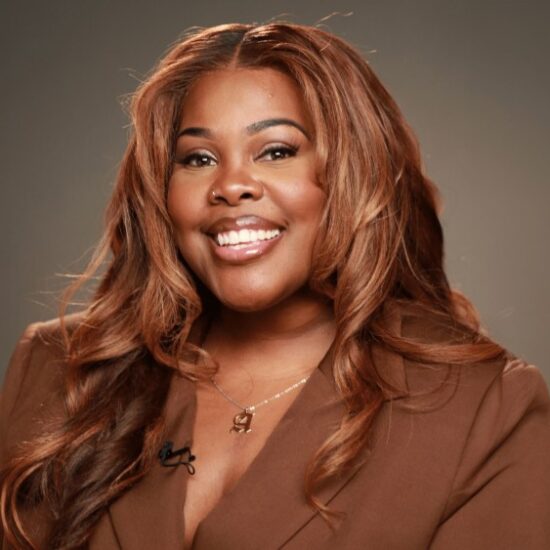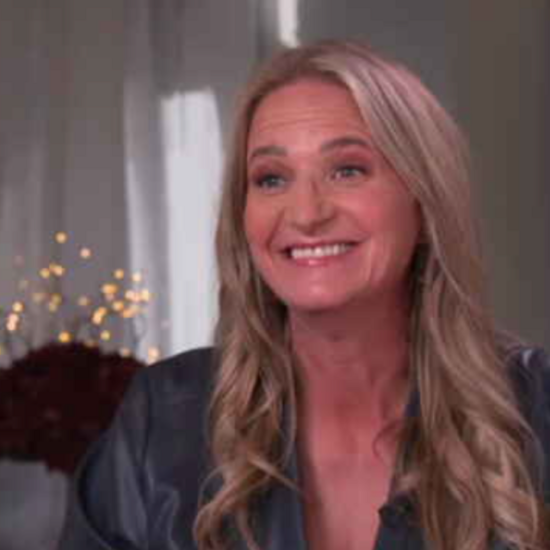
The odds are against making a career as an indie musician. Finding success as a memoirist is equally unlikely. Michelle Zauner, improbably, has done both. Under the nom-de-band Japanese Breakfast, Zauner, who is 33, has released three albums of dreamy alternative pop, including last year’s critically acclaimed “Jubilee.” That effort came close on the heels of her memoir, “Crying in H Mart,” which was not only an artistic triumph — artfully observed and emotionally rich — but a surprise runaway best seller. The book, about food and memory, the confusion that can come with biracial identity, Zauner’s fraught relationship with her hyper-demanding Korean mother and then her grief at losing her mother to cancer, has stayed on the New York Times best-seller list for more than 40 weeks. “For a long time, and maybe still in some part of me, I felt like I had to have a backup job,” says Zauner, who is currently working on the screenplay for a film adaptation of her book and will be touring with Japanese Breakfast this summer. “This kind of validation makes life a lot easier.”
I read an interview where you said that as a musician you tend to get a ton of “What’s it like to be a girl in music?” questions, but now, after “Crying in H Mart,” the cliché questions are about racial identity. What have those questions revealed to you about other people’s assumptions about Asian Americans? It’s such a diffuse category. Well, I can say that the most gratifying thing to learn from other people about the book is that it shined a light on a different type of parental affection. I just did an interview with the Korean press, and a lot of times they ask me, Why do you think that your book is so successful? I feel like part of it is that this kind of relationship hasn’t been showcased before. That’s why it was so challenging for my mother and me to figure out. We had no reference point for why we were so at odds and how to manage our cultural divide and probably not even realizing that it was a cultural divide. I was so angry at my mom for so much of my life, and I was just starting to get to this wonderful place with her when she got sick. It wasn’t until after she died that I was able to realize how different her love and affection was from my peers’ parents’ love and affection.
What’s been less gratifying to learn from people about the book? I think they don’t even mean it, but I find it offensive when people think that the book has been successful because of the attacks on Asian Americans, because of anti-Asian hate. There are some people who feel like woke readers want to support Asians.
And so they’re buying “Crying in H Mart” out of solidarity? Yeah. I’m sure there were a number of Black authors that also experienced this during the Black Lives Matter movement. There’s weird guilt and heavy feelings about that. But it’s also insulting, because I would like to believe that the success of this book is because I’m allowed to be a main character for the first time in the world. And this book has universal themes about mothers and daughters and grief and food and memory. This doesn’t have to be a specifically Asian American story. This is a story, and I happen to be Asian American.
You know the famous idea that musicians’ first albums are good because they spend their whole lives writing the songs and then the second albums aren’t as good because the songs all had to be written quickly? Maybe this is a stretch, but are you finding anything similar about the prospect of writing a follow-up to “Crying in H Mart”? No, I’m dying to! My creative life has been so raw and personal that I would like to do something more analytical. The most difficult part of writing the book was that I don’t feel like I’m someone with a great memory, which you need for memoir. So part of me is interested in writing a book that’s rooted in the present. A natural jumping-off point from “Crying in H Mart” is to study Korean. I’d like to move to Korea for a year and document that process and the funny idiosyncrasies of a specific language. Something like Jhumpa Lahiri’s “In Other Words.” I love the idea of just observing, developing language skills. I’m looking forward to that. It feels like a safe project for me.
Michelle Zauner performing with her band, Japanese Breakfast, in Atlanta in April.
Scott Legato/Getty Images
Earlier you said your mom’s affection was so different from the affection shown by your peers’ parents. How? I mean, she had this blunt honesty that felt exquisitely cruel at times. She was overbearing and critical. I never witnessed my friends enduring that type of thing. Like, my husband’s mom is a coddling kind of mother. When I got fired from a job, she’d say something like: “That’s crazy. You work so hard. They don’t deserve you.” My mom’s reaction would be, “What did you do? Anyone can hold a tray.” Everything was always my fault. In some ways I value that now because it makes me look at myself critically. But as a child it was annoying because you want your parents to be on your side, and she never would be. If I got hurt, my mom would start screaming at me instead of picking me up. But I don’t think that’s a uniquely Asian thing. I’ve had people from a variety of cultures express that that’s how their parents reacted. It’s just misplaced anger. The parents are so upset that this thing is happening to you that they accidentally direct their anger at you instead of trying to fix the situation.
It can be such a confusing thing to feel real ambivalence about a parent. How does that ambivalence make you think about the kind of mom that you’d want to be? That is, if you want kids, of course. I do. It’s made me realize that I am probably going to be just like my mom in some ways. Even with my husband I can find myself interacting with him in the same way that my mom used to drive me insane. Like, he sunburns easily, and I feel anxiety about knowing that he’s not wearing sunscreen. I’m constantly harassing him about it, and it makes me think, Oh, God, my mother was like that. Drove me crazy. Let me get sunburned! I don’t care! But I would like to believe that I have the self-awareness of not wanting to be too demanding. Or being more open. My mom was very unsupportive of my creative career because she’d never seen that work out for anyone. Coming from a background where that did work out for me, I think I’ll be able to be more accepting when I have a kid than she was.
Zauner and her mother in 1990.
From Michelle Zauner
There’s a piece of advice that your mom gives you in the book that I’ve been thinking about a lot. She said that you should “save 10 percent of yourself” as a secret and not share it with anyone else. What I keep wondering about is whether that’s actually good advice. What do you think? I do. It was difficult for me to understand until recently. There are types of truths you tell that are about unburdening yourself and putting that burden onto someone else. That, I think, is part of what my mom meant. It’s more noble to keep certain things to yourself in order to protect people, your loved ones. I’m trying to think of an example to give you. I can only think of something that’s intense and serious or gross and weird.
You choose. OK, one would be if you’re a parent that’s had affairs and you feel burdened by that information and that you should be honest with your child. But there are some family secrets that someone doesn’t need to know even if it makes you feel better to tell them. Or if your friend’s ex had once said something really inappropriate to you. Does it make you feel better to let that out even if that relationship is already over? Or is it more noble to protect your friend from the pain of knowing just how awful that ex was? And here’s the weird, gross example: A friend and I went to this L.A. restaurant and had this delicious Korean raw crab. But right as I was leaving I saw the owner chasing a cockroach. I was thinking that I want to take my husband back there but knowing there was a cockroach would gross him out. Should I not tell him so that he can enjoy the meal? Or should I tell him because holding back the information is burdening me?
That’s a real conundrum. It’s a stupid example but I don’t have a better one!
Here’s another conundrum: There was a Times article about you right around when the book came out and it mentioned an article you’d written for Harper’s Bazaar about your relationship with your father. In the Times piece, your dad — I know you two are estranged — was quoted as saying, “I’m not a perfect guy but I certainly deserve more than I was given in both the article and in the book.” Is he right? Your portrait of him was pretty unsparing. I actually reread that recently and I think what he was talking about was that he was upset that he wasn’t in the book’s acknowledgments. I spoke to him briefly and — I’m trying not to be too revealing — he was also upset that I wrote that he sold used cars to the military. He wanted me to know that he sold new cars. That was just something I’d misremembered. In my mind, him selling used cars to the military and taking such a deep sense of pride and accomplishment was kind of funny. I thought that it was sweet that he had come from such a difficult life and found something that he was good at and it turned his life around. But I think he felt I was demeaning him by saying that he sold used cars and it was important for me to know that he sold new ones. You think, I talked about how you were drinking. I talked about how you crashed your car. But it’s that one weird little detail that upsets someone.
Your mom, as you said before, was really critical of you. But now that you’ve had time to live with the reality of the book’s success, what do you think she’d make of how strongly people have responded to the story of you two? I’m sure she would have, like my dad, found something weird that I shared that I didn’t know would’ve bothered her. But I think I understand people in the way she taught me. My mom had a creative sensibility that went unexplored, and she really passed that on to me. I think she would find it moving. We were moved by similar things. For instance, I started crying in a Costco a few months ago because I saw an old man dressing the hot dogs and bringing them back to his wife of 50 years or whatever. I looked over at my husband and burst into tears because I was like, I’m so glad I have you in my life to do this mundane chore that is so enjoyable with you by my side. That’s something that would have, I know, also moved my mom to tears. She would have brought that sensibility into reading this book. If someone else wrote the book, she would’ve said to me in a chiding way, Oh, I hope that when I die, you love me this much to write something like that. Maybe she wouldn’t have ever said that about my book, but I think that she’d be proud.
This interview has been edited and condensed from two conversations.
David Marchese is a staff writer for the magazine and the columnist for Talk. Recently he interviewed Neal Stephenson about portraying a utopian future, Laurie Santos about happiness and Christopher Walken about acting.













